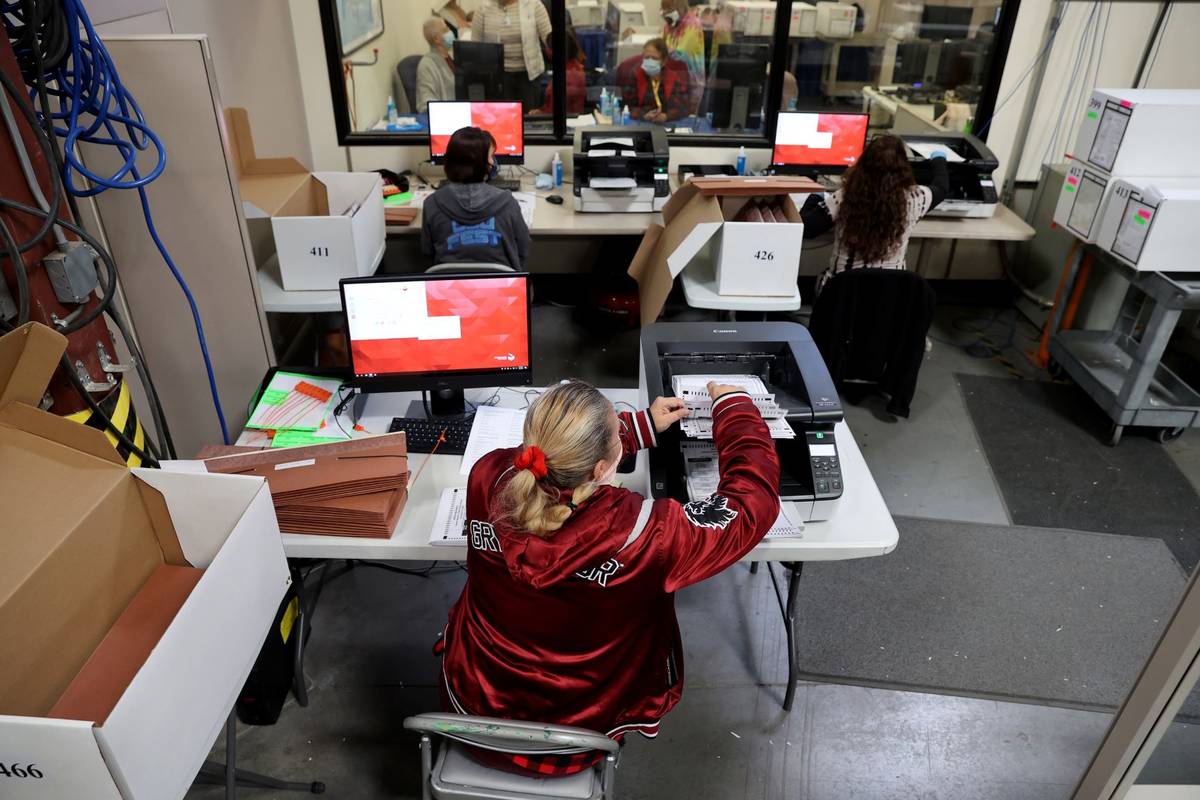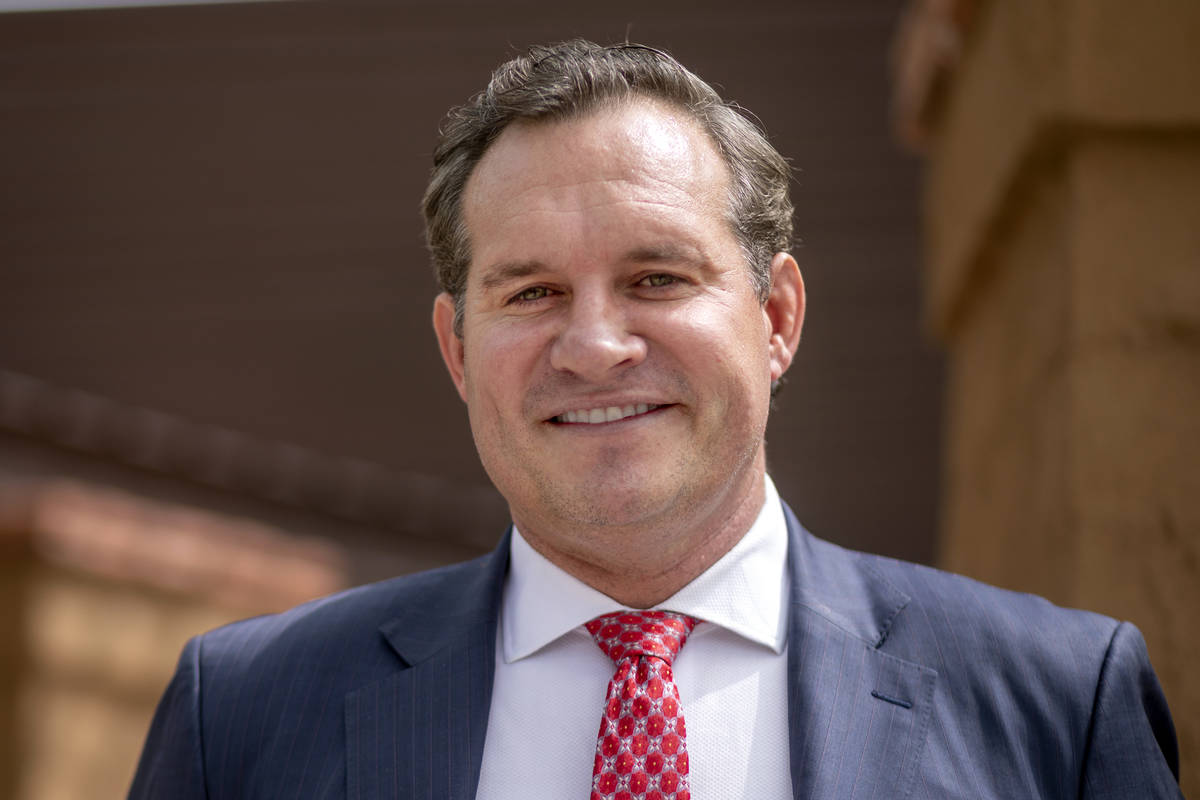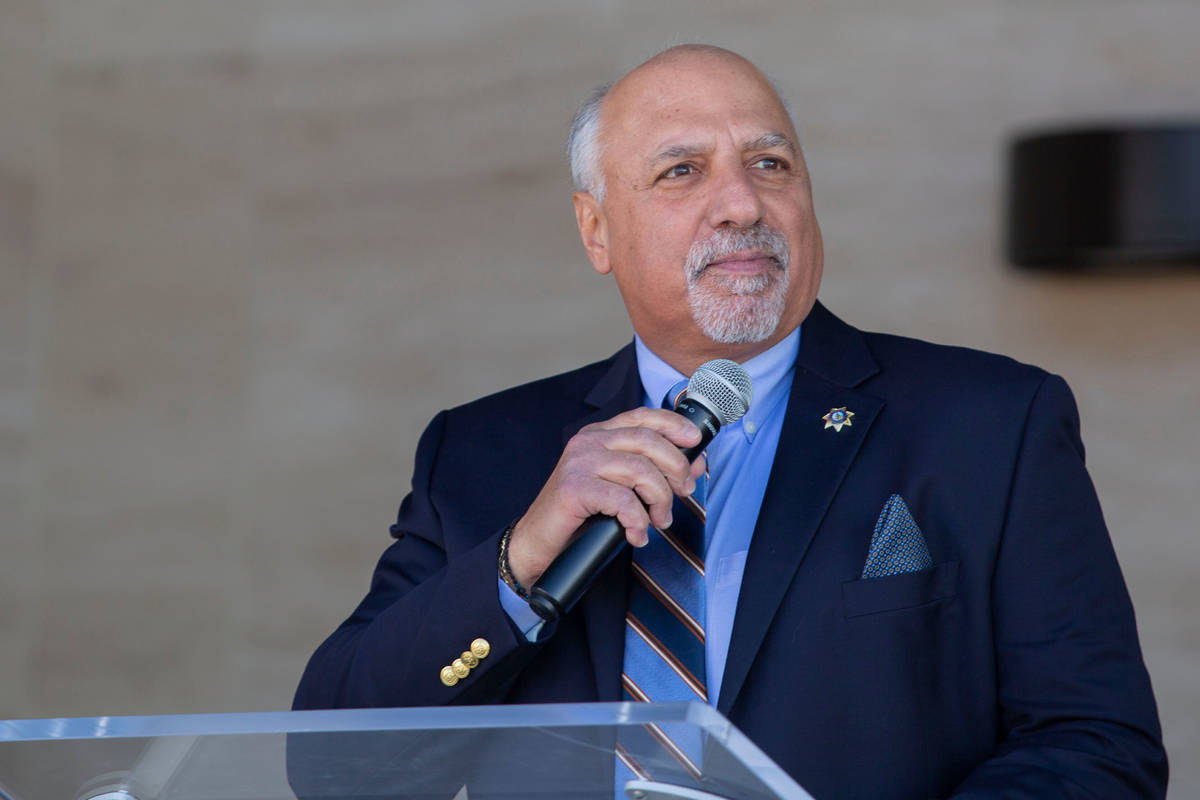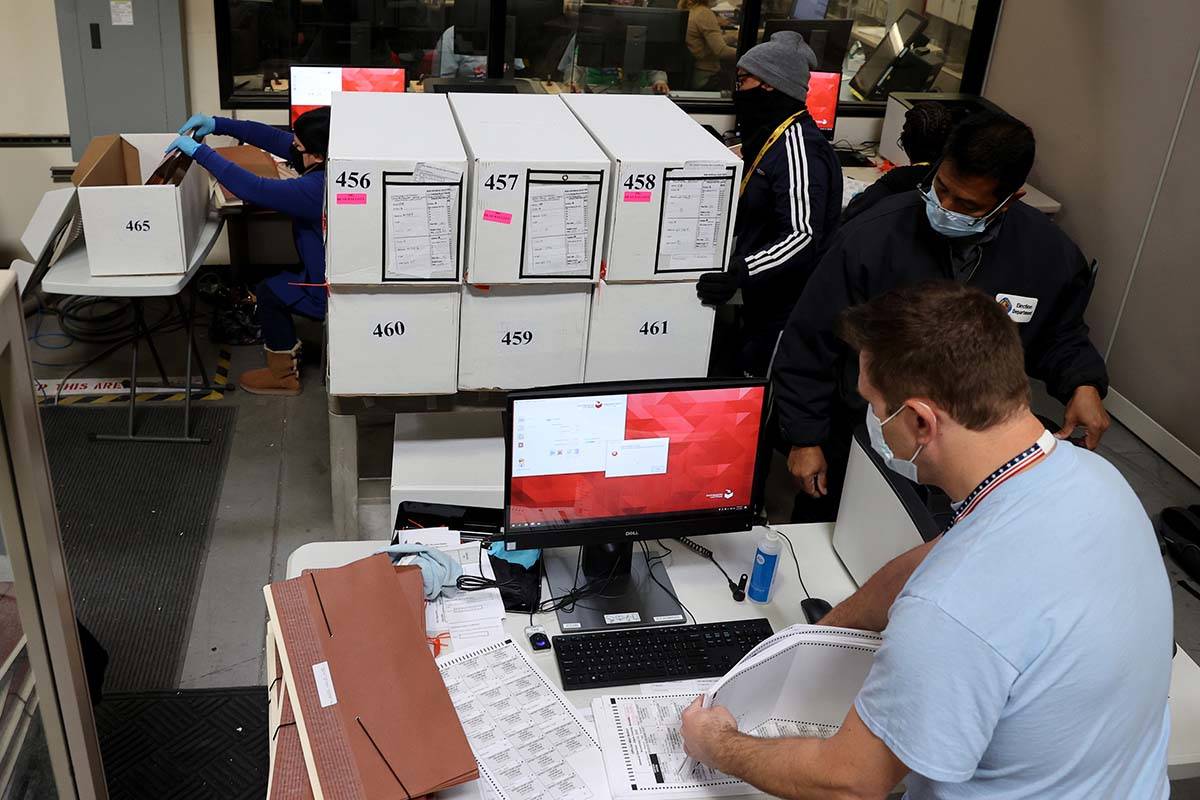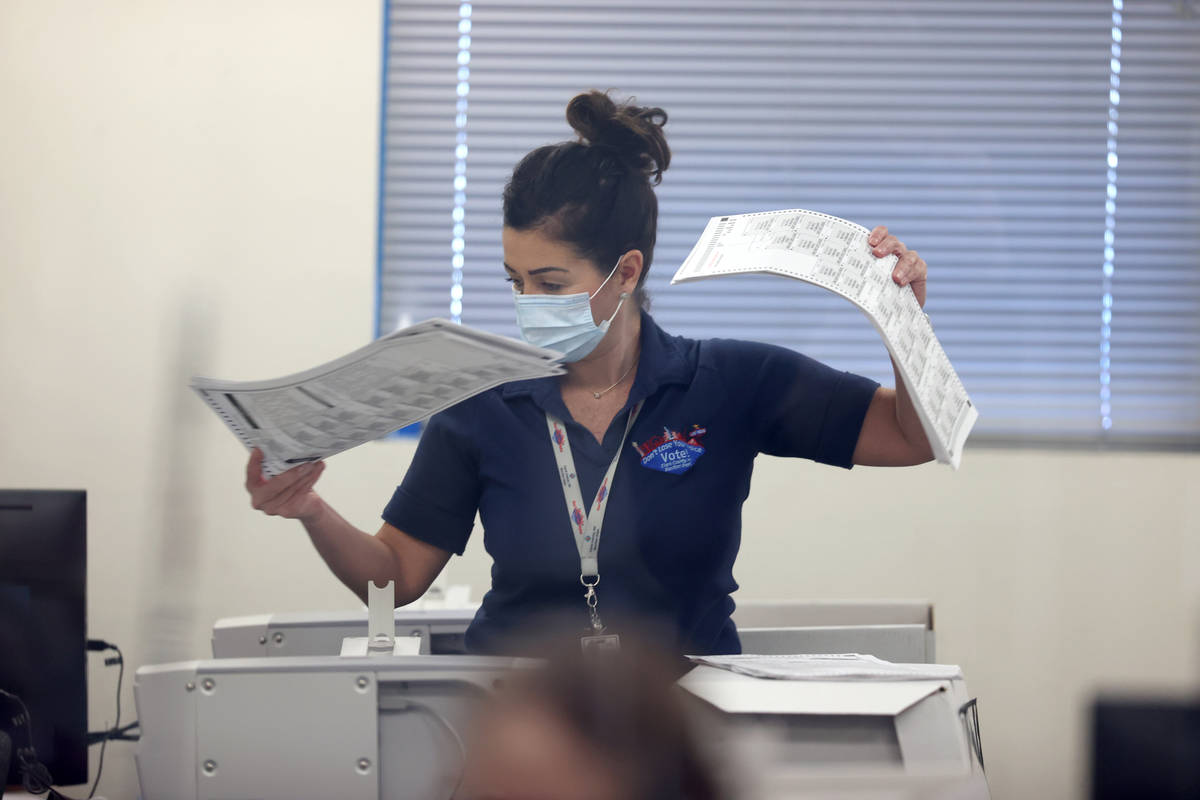Clark County Commission election fight goes to Supreme Court
Democratic Clark County Commissioner Ross Miller was sworn into office three months ago, but his Republican opponent in the narrowly decided race last November has yet to concede, determined instead to force a new election.
Las Vegas Councilman Stavros Anthony, who lost by just 15 votes, paid about $80,000 for a recount in December that ultimately only padded Miller’s lead and he was rebuffed by the state District Court after he sought a legal remedy to try to force an election do-over.
Anthony, a retired police captain, then appealed his case to the Nevada Supreme Court in January with the hope that justices will draw the conclusion that the District Court did not: The election was effectively prevented because voting discrepancies — far more than Miller’s margin of victory — had created doubt about the accuracy of the outcome.
Oral arguments are expected Wednesday. In most cases, the process generally involves attorneys answering justices’ questions based on their previously filed written arguments.
A decision could come within a few months if not sooner since election matters are typically given precedence, according to attorney Mark Hutchison, who is representing Anthony and previously served as the state’s lieutenant governor.
“It really will determine whether the intent of the election laws in the state of Nevada is to ensure that all election results (reflect) the will of the voters,” he said. “That’s really what’s at issue here.”
An attorney for Miller declined to comment for this story.
Discrepancies key to effort
There is no uncertainty about what the ongoing dispute is about: Clark County Registrar of Voters Joe Gloria said 139 discrepancies had been identified in the race for commission District C out of more than 153,000 votes cast.
Discrepancies occur when the number of votes counted at a precinct do not match the number of voters who signed in to cast a ballot. It may happen because a voter checks in but does not vote, or vice versa, and it could be the result of a mistake processing voter registration at a machine that leads to two check-ins but only a single vote, among other human error or technological issues.
But with voter privacy rules restricting officials from tracing the source of the error, it is impossible to reconcile how the voters-to-votes balance is thrown off. It is only clear that it is, officials say.
The issue of discrepancies, which officials say are not uncommon in elections and not related to fraud, became a sticking point in this race alone only because they exceeded the contest’s margin of victory. Gloria had acknowledged concern and the all-Democratic commission, which later certified the results, first briefly flirted with the idea of calling a special election.
Prevented or not?
The central legal argument to be decided will be whether the discrepancies constitute a “prevented” election under the state statute that Anthony’s lawyers are relying on to call a new race.
Attorneys for Miller, a former Nevada secretary of state, argue in their documents that the response is clear and was already answered by the lower court: No.
The statute itself reads that county commissioners shall order a new election if one “is prevented in any precinct or district by reason of the loss or destruction of the ballots intended for that precinct, or any other cause.”
Anthony’s lawyers say the district court’s reading of the law — that the logistics of carrying out an election must be literally stopped, for instance by a natural disaster or by votes lost in transit — is too narrow. Miller’s attorneys say the opposing legal team’s interpretation is far too broad.
Leaning on the part of the statute that reads, “or any other cause,” Anthony’s lawyers argued in their opening written brief to the Supreme Court in January that an election is not supposed to be just an event that occurs but it is meant to truly determine the “real will of the electors.”
“Just as in a case where ballots are lost, destroyed, or cannot be deciphered due to any myriad of causes, no one knows who won this race,” they wrote.
Two avenues to challenge
But Miller’s lawyers say the argument is flawed. For one, the statute is simply intended to guarantee voter participation and not a remedy for candidates to challenge the results, they say.
In their written answer to Anthony’s brief, they acknowledged that his disappointment must have been “acute” after losing a lengthy and expensive campaign for public office.
“But, to put it coldly, the Nevada election code does not care whether an election is closely-run or ends in a landslide,” they wrote. “Whether a candidate loses by a single vote or a hundred thousand votes, his or her rights to contest the results are the same.”
Those two avenues are a recount or filing an election contest in court. Anthony declined to pursue the latter, they noted, because it would not lead to a new election but potentially could have resulted in Democratic Gov. Steve Sisolak appointing someone to fill a vacant seat — an unfavorable prospect for a Republican.
In response, Hutchison said in an interview that it is Anthony’s legal right to pick the remedy that he wishes to pursue in court.
Leery of ‘democratic instability’
Beyond pointing to procedural issues in Anthony’s argument, Miller’s attorneys also suggest that allowing new means to challenge an election could open the door for candidates to seek ways to stretch battles months into the new terms of elected officials, “which is a recipe for democratic instability.”
And they too found fault with the premise that discrepancies somehow equated to lost ballots, rather than routine differences between sign-ins and votes tabulated at certain precincts.
“It is absolutely beyond anyone’s ken to state that these data discrepancies had any effect whatsoever on the election’s results,” they wrote.
Contact Shea Johnson at sjohnson@reviewjournal.com or 702-383-0272. Follow @Shea_LVRJ on Twitter.



